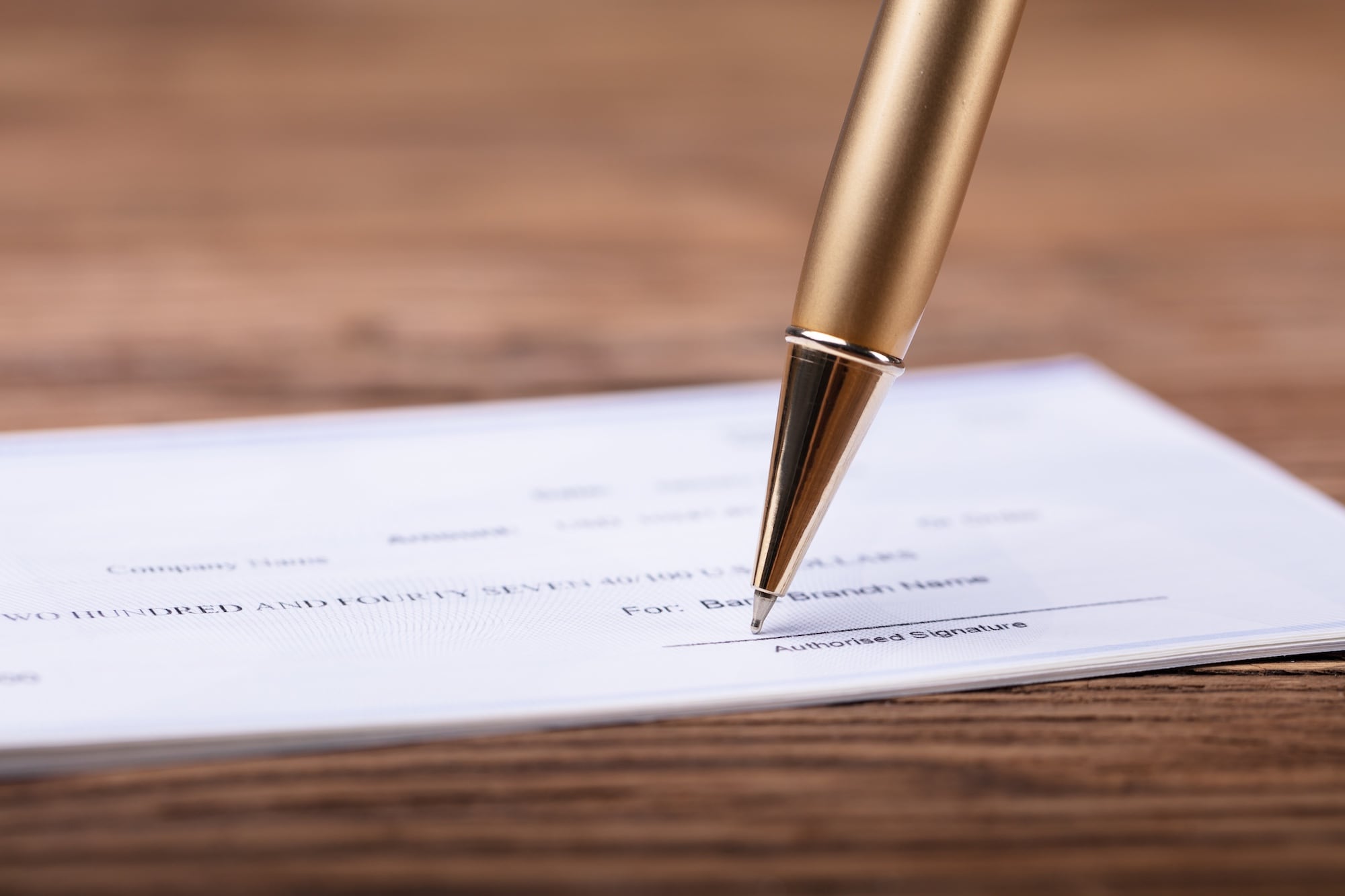In Nassau County, Long Island, and throughout the state, issuing a check without sufficient funds can lead to serious legal consequences under the offense known as “Issuing a Bad Check.” Courts consider this crime fraudulent and may impose a criminal record, jail time, lengthy probation, and significant fines. The consequences extend beyond immediate legal penalties, potentially affecting your professional license, employment opportunities, and immigration status. If you or a loved one is facing charges for issuing a bad check in Nassau County or elsewhere on Long Island, it is crucial to consult with an experienced Long Island fraud crimes lawyer to navigate the complexities of your case.
Understanding Issuing a Bad Check Charges in New York
Under New York Penal Law § 190.05, a person is guilty of issuing a bad check when they knowingly provide a check while aware that their bank account lacks sufficient funds to cover the amount.
To clarify:
- You are committing this offense if you know there are insufficient funds in your account when you write the check.
- You intend or believe that the bank will reject the check.
- The bank ultimately refuses payment due to insufficient funds.
Nassau County and other Long Island courts treat this crime seriously, making it essential for anyone facing these charges to understand its nuances.
3 Key Elements of the Offense
To secure a conviction for issuing a bad check, the prosecution must prove the following three elements beyond a reasonable doubt:
- Issuing or Passing a Check with Insufficient Funds: You must knowingly present a check from an account that does not have adequate funds to cover the payment. Authorities treat an account that is closed or nonexistent as if it has insufficient funds.
- Intent or Belief: The prosecution must demonstrate that you had the intent or belief that the bank would reject payment when you issued the check.
- Refusal of Payment by the Bank: The bank must refuse payment due to insufficient funds, which is typically supported by bank statements or official documentation.
Legal Presumptions Related to Issuing a Bad Check Charges on Long Island
If you find yourself charged with issuing a bad check in Nassau County, understanding the legal presumptions that could influence your case is vital. A legal presumption is an inference that the court can draw based on established facts. Here are four critical presumptions relevant to this offense:
- Knowledge of Insufficient Funds: If your account had a history of insufficient funds when you issued the check, the law presumes you knew there wasn’t enough money to cover it.
- Intent to Defraud: If you present a check without having an account at the bank where it’s cashed, the law presumes you intended the check to be rejected.
- Timely Presentment: If someone presents the check within 30 days of issuance and your account lacks sufficient funds, the law presumes you knew or believed the check would bounce.
- Documentation of Insufficiency: If the bank sends a notice or statement showing the check wasn’t honored due to lack of funds, that serves as proof the account didn’t have enough money.
These presumptions can significantly affect your defense strategy, making it crucial to hire an attorney experienced in Nassau County white collar crime defense.
Defenses Against Bad Check Charges for Long Island Courts
New York law outlines two affirmative defenses that can negate charges for issuing a bad check:
- Rectification: Proving that you made full payment for the check amount within 10 days of it being dishonored is an effective defense.
- Acting on Employer’s Orders: If you issued or passed the check as part of your job duties, without personal benefit, this may be a viable defense.
These defenses underscore the necessity of having a skilled attorney who can effectively advocate for your rights in Nassau County.
Potential Sentencing Consequences for Issuing a Bad Check
Issuing a bad check is classified as a Class B misdemeanor in New York, and a conviction can carry significant consequences.
Sentencing possibilities include:
- Up to 90 days of incarceration.
- Up to one year of probation, which may come with conditions that could impact your daily life.
- A split sentence involving a combination of jail time and probation.
- One year of conditional discharge, where the court sets specific conditions such as community service or restitution.
- Fines reaching up to $500, or double the gain derived from the offense.
In addition to these penalties, a conviction for issuing a bad check may lead to serious immigration issues if you are not a U.S. citizen. It can jeopardize professional licenses, hinder job opportunities, and negatively impact your career trajectory.
Hire an Experienced Nassau County White Collar Defense Attorney for Issuing a Bad Check Charges
If you are facing charges for issuing a bad check in Nassau County or anywhere on Long Island, it is crucial to seek representation from a skilled Long Island bad check criminal defense attorney as soon as possible. The landscape surrounding issuing bad check charges is complex, and you need an advocate who understands the nuances of these charges in local Long Island courts.
Attorney Ramy M. Louis, a former Long Island senior prosecutor with extensive fraud and financial crimes experience, actively defends clients against these serious allegations.
He will guide you through the complexities of the criminal justice system, clarify the charges you face, and work tirelessly to develop a defense strategy tailored to your unique circumstances.
With over a decade of experience, Attorney Louis has successfully negotiated significant reductions of charges, secured favorable non-criminal plea bargains, and achieved outright dismissals. Don’t leave your future to chance.
Contact The R.M.L. Law Firm, PLLC today to schedule your free confidential case evaluation and take the first step toward protecting your rights and reputation in Nassau County and across Long Island.





